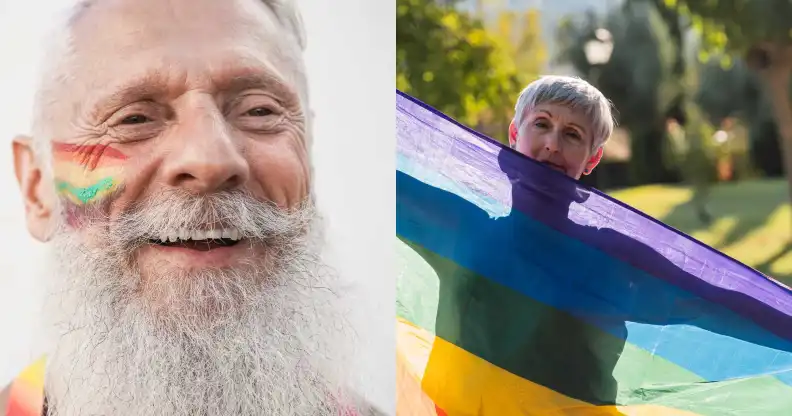LGBTQ+ elders feel ‘excluded and isolated’ in a community ‘geared towards younger people’, study finds

A charity dedicated to LGBTQ+ people over 50 has revealed that the older queer community feel ‘excluded and isolated’. (Getty Images)
A charity dedicated to LGBTQ+ people over 50 has revealed that the older queer community feel 'excluded and isolated'. (Getty Images)
A UK-based charity dedicated to LGBTQ+ people over 50 has revealed that many feel “excluded and isolated” in a community “geared towards younger people”.
Research by Opening Doors found people over the age of 50 “especially within the gay community” feel less visible due to being less likely to have “familial networks”.
Due to “distrust in the system”, the charity also found that older people often go without help from external support networks.
John Campbell, who identifies as androsexual, said his experience as an older LGBTQ+ person has been “trying at times, owing to the amount of emotional trauma”.
‘I feel excluded’
Campbell, 64, told Metro: “At times I feel excluded from the community as it is mainly geared towards younger people.
“A lot of this is due to the fact many people from older generations were lost to the AIDs pandemic. It wiped out a generation of movers and shakers, and has left trauma for so many.”
The term ‘androsexual’ refers to people who, regardless of their gender identity, are sexually or romantically attracted to masculinity.
Angela, who didn’t provide her last name and is trans, echoed Campbell’s thoughts regarding a shared trauma within the community.
The 59-year-old said: “The majority of people my age or older have lived through different times and share a common set of experiences and emotions associated with a far less accepting society.
“It is a less frightening place to be known as LGBTQ+ than it ever was when I growing up in the 1970s, 80s and even the 90s.”
‘It can be quite a scary and unsettling experience’
Head of fundraising and communications at Opening Doors, Jonathan Buckerfield, said the findings show the need for support systems suited for LGBTQ+ people as “everything is set up for straight people”.
“As we age, we become less visible in wider society, and this is especially true in the LGBTQ+ community,” Buckerfield said.
“We don’t have the same familial networks and we can find ourselves increasingly cut off from social networks and services. It can be quite a scary and unsettling experience.”
Buckerfield noted that past traumas linked to a time when being LGBTQ+ was less tolerated mean activities that focus on reminiscing are not as suited to older LGBTQ+ people.
“LGBTQ+ people also experience health inequalities, as they are more likely to struggle with alcohol and addiction – but they are also less likely to trust the NHS as straight people do, as they can remember a time when conversion therapies were offered,” he continued.
In March, older LGBTQ+ people spoke to PinkNews about the struggle they faced hiding their true selves from prejudiced eyes and fighting for their right to grow old.
According to GLAAD, the average life expectancy of trans women of colour is 35. For a cis woman, it is 78.
Despite the struggles faced by the ageing LGBTQ+ community, 92-year-old Betty proved that age doesn’t have to result in being cut off from the world as she had her lifelong wish to watch a male strip show granted by her care home in Hampshire.

